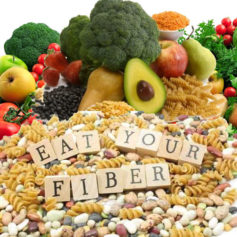When you get wounded, you might cover it up with a bandage. Or when you have muscle pain, you might take ibuprofen. But have you ever thought about how the foods you eat could also be included in your care plan to help you heal and prevent disease?
According to Cathy Garvey, RD, with the Scripps Center for Integrative Medicine, your food choices are just as important as the medications and supplements you take for overall health since they can protect against inflammation.
Inflammation: What’s the big deal?
Inflammation occurs when the immune system cells that guard against infection and repair injury begin to attack healthy arteries, organs and joints. Since inflammation is a factor in several chronic conditions, including heart disease, diabetes, rheumatoid arthritis, obesity, cancer, Alzheimer’s disease and various autoimmune diseases, Garvey says that following an anti-inflammatory diet can have a significant influence on your health and may prevent inflammation-related disease.
An anti-inflammatory diet emphasizes increasing your intake of foods that reduce inflammation:
- Omega-3 fats (salmon, tuna, walnuts)
- Antioxidants (sweet potatoes, blueberries, spinach)
- Probiotics (yogurt, miso, sauerkraut)
- Fiber (artichoke, black beans, apple)
It’s also important to limit foods that promote inflammation:
- Trans fats
- Saturated fats
- High levels of omega-6 fats (corn oil, grapeseed oil, peanut oil)
The Mediterranean diet is an example of an anti-inflammatory diet since it mainly focuses on fruits, vegetables, fish and whole grains, and limits unhealthy fats, such as red meat, butter and egg yolks.
Meals as medicine
“When you eat more omega-3-rich foods and whole foods, and minimize processed foods, you not only lower your levels of inflammation, but also provide your body with beneficial vitamins and nutrients that help with the prevention of disease,” Garvey says.
Plus, she says that adding more omega-3 fats to your diet can help reduce stress while potassium-rich foods, and foods low in sodium, can help regulate blood pressure.
Considering that most of us eat anywhere from three to five meals a day, Garvey says it’s important to be mindful about what foods we’re eating to fuel our energy levels and keep our minds and bodies functioning at their best…
Read more: scripps.org

